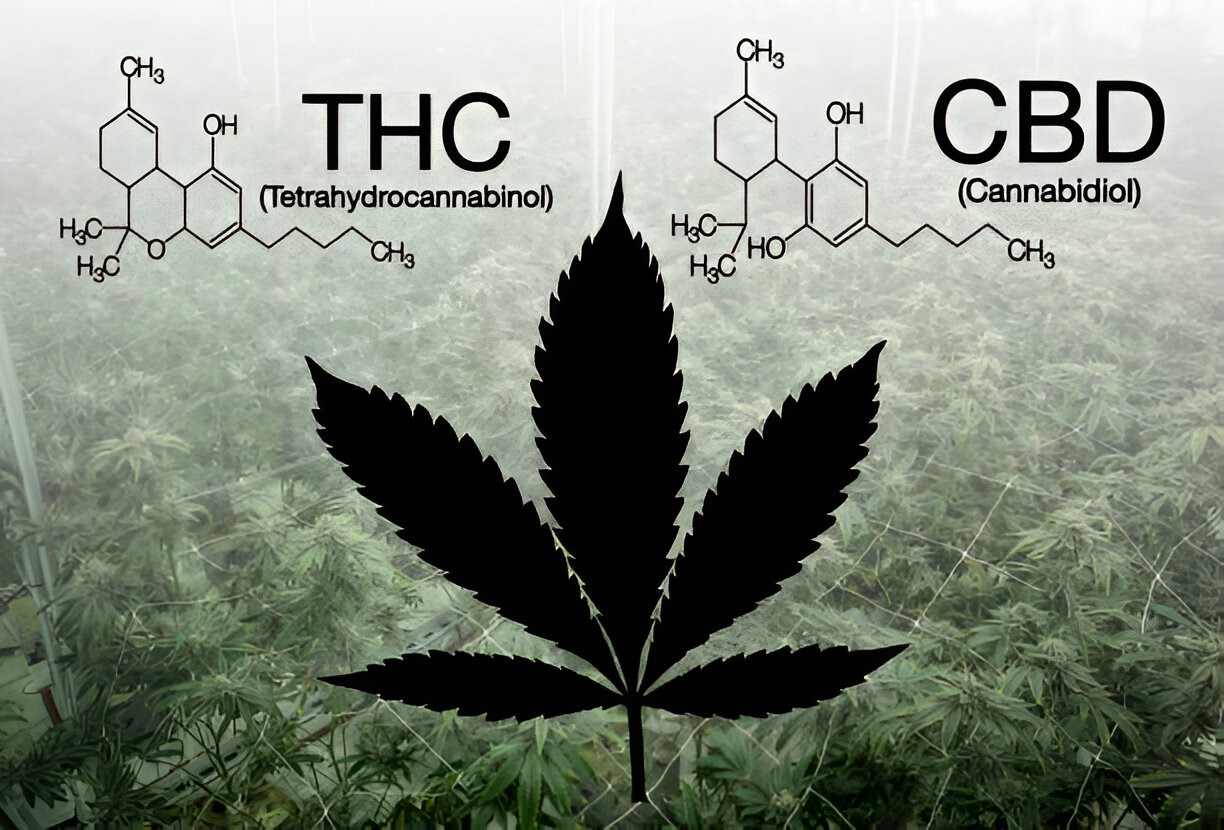In recent years, the cannabis industry has experienced a surge in popularity, with CBD and THC emerging as key players in the wellness and medical fields. As more people turn to these compounds for potential health benefits, it’s crucial to understand their differences, effects, and legal status. Let’s dive into the world of CBD and THC, exploring their unique properties and potential applications.
Contents
Distinguishing CBD from THC
Cannabidiol (CBD) and tetrahydrocannabinol (THC) are two prominent cannabinoids found in the cannabis plant. While they share a common origin, their effects on the human body differ significantly. CBD is non-psychoactive, meaning it doesn’t produce the “high” associated with marijuana use. In contrast, THC is psychoactive and responsible for the euphoric sensations typically linked to cannabis consumption.
Key Differences Between CBD and THC
The primary distinction between CBD and THC lies in their interaction with the body’s endocannabinoid system. CBD does not directly bind to cannabinoid receptors, instead influencing the body indirectly. THC, however, binds directly to these receptors, resulting in its psychoactive effects.
Another crucial difference is their legal status. CBD derived from hemp (containing less than 0.3% THC) is legal in most countries, while THC remains illegal in many jurisdictions due to its psychoactive properties.
Potential Health Benefits of CBD
CBD has garnered attention for its potential therapeutic applications. Research suggests it may be beneficial for:
- Reducing anxiety and stress
- Alleviating chronic pain and inflammation
- Improving sleep quality
- Managing epilepsy and seizures
- Addressing skin conditions like acne and eczema
CBD’s versatility extends to various consumption methods, including oils, edibles, topicals, and inhalation products. This diversity allows users to choose the most suitable option for their needs and preferences.
Exploring THC’s Medical Potential
Despite its controversial status, THC has shown promise in several medical applications:
- Pain management, particularly for conditions like fibromyalgia and multiple sclerosis
- Nausea and vomiting relief, especially for cancer patients undergoing chemotherapy
- Appetite stimulation for individuals with conditions that cause weight loss
- Potential anti-inflammatory properties
- Sleep aid for those with insomnia
It’s important to note that while THC can offer these benefits, its use comes with potential side effects and legal considerations.
A Comparative Analysis
When it comes to specific health concerns, CBD and THC may offer different advantages:
Pain Relief: Both compounds show potential in managing pain, with THC generally considered more potent. However, CBD’s non-psychoactive nature makes it a preferred choice for those seeking pain relief without impairment.
Anxiety Management: CBD has demonstrated significant potential in reducing anxiety symptoms. While some individuals report anxiety relief from THC, others may experience increased anxiety or paranoia, particularly with higher doses.
Sleep Aid: CBD may help improve sleep quality by addressing underlying causes of insomnia, such as anxiety or pain. THC can induce drowsiness, but its psychoactive effects may disrupt natural sleep patterns for some users.
Appetite Stimulation: THC is well-known for its ability to increase appetite, often referred to as “the munchies.” CBD, on the other hand, does not typically affect appetite significantly.
Legal Landscape and Considerations
The legal status of CBD and THC varies widely across different countries and even within regions of the same country. While CBD derived from hemp is legal in many places, THC remains more strictly regulated. It’s crucial for users to be aware of local laws and regulations before purchasing or using any cannabis-derived products.
Conclusion
CBD and THC each possess unique properties and potential benefits. As research advances, our grasp of these cannabinoids and their roles in health and wellness deepens. Whether you’re looking to alleviate specific symptoms or enhance overall well-being, understanding the distinctions between CBD and THC, consulting with medical experts, and staying aware of legalities are crucial steps.



